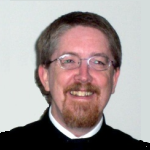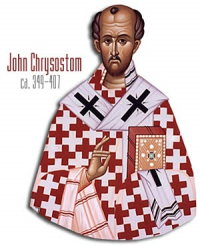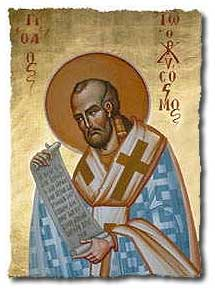
Deprecated: trim(): Passing null to parameter #1 ($string) of type string is deprecated in /home/aoiusa/public_html/wp-content/plugins/sexybookmarks/public.php on line 388
Deprecated: trim(): Passing null to parameter #1 ($string) of type string is deprecated in /home/aoiusa/public_html/wp-content/plugins/sexybookmarks/public.php on line 394
Deprecated: trim(): Passing null to parameter #1 ($string) of type string is deprecated in /home/aoiusa/public_html/wp-content/plugins/sexybookmarks/public.php on line 400
Fr. Jensen:
…[P]roperty rights are not a panacea – protecting and enhancing private ownership will not cure all that ails us personally or socially. Nor can we separate the exercise of our right to property from the moral law or, for Christians, the Gospel. But Orthodox social thought does I think allow us to make a convincing case that property rights are a key element of human flourishing, a necessary ingredient of a just society, and an aid to Christian ministry. Rooted as it is in human nature, it is also a right that can help us see the dignity of all members of the human family and of the ability that all of us – rich or poor, male or female, young or old – have to serve the flourishing of those around us, our society and the Church.

 Source: Action Institute | Fr. Gregory Jensen
Source: Action Institute | Fr. Gregory Jensen
As a pastor, I’ve been struck by the hostility, or at least suspicion, that some Orthodox Christians reveal in their discussions of private property. While there are no doubt many reasons for this disconnect, I think a central factor is a lack of appreciation for the role that private property can, and does, play in fostering human flourishing. It is through the wise and prudent use of our property that we are able to give ourselves over in love to the next generation and so give them the possiblity of likewise transcending a purely material way of life through an act of self-donation. Economists Terry Anderson and Laura Huggins, in Property Rights: A Practical Guide to Freedom and Prosperity (Hoover Institution, 2009), are right when they remind us that while not a panacea, “property rights to oneself (human capital), one’s investments (physical capital), or one’s ideas (intellectual capital), secure claims to assets” and so “give people the ability to make their own decisions, reaping the benefits of good choices and bearing the costs of bad ones.” In part, I think the hesitancy among some Orthodox Christians to embrace a robust understanding and application of property rights reflects an uncritical reading of the patristic witness. I have in mind here specifically the homilies of St. John Chrysostom in which the saint is often critical of how some abuse their wealth. But as recent scholarship has demonstrated, his argument is more subtle than we might at first think. As with other Church fathers, Chrysostom is not a proponent of abolishing private property but of its morally right use.
We see this especially in his teaching on almsgiving where he distinguishes between “beggars” (ptōchoi) and what today we call the working poor (penētes). For the latter, the Church’s intervention aims at helping the working poor obtain a degree of economic independence so that they too can meet their own personal familial obligations. Thus anything that undermines our ability to work is morally evil and the Church must seek to correct it. As for those who, objectively, are unable to care for themselves because they can’t work, yes, the Church has an obligation to care for for them — but this doesn’t exhaust Chrysostom’s economic argument. Like members of the working poor, the small middle class and the even smaller upper class, the beggar is expected to allieviate the suffering of others in whatever way his circumstances make possible. According to Eric Coztanzo in his study of St. John Chrysostom, “John exhorted the wealthy and the poor to participate” in almsgiving “as an act of virtue.” In any case, while Chrysostom speaks in terms of the morally good use of wealth, it is a standard inconceivable apart from private property and, as his understanding of the moral obligation of even the poorest Christian suggests, there is no one so poor as to be wholly without any personal wealth even if that wealth is other than material.
Social Dimensions
One thinker who can help us understand more fully the anthropological vision that underlies Chrysostom’s argument is the 19th century Russian Orthodox philospher Vladimir Solovyov. Though he doesn’t engage Chrysostom’s sermons, Solovyov advances an argument that helps us understand why for the saint even the materially poor are obligated to participate in the philanthropic work of the Church. Specifically, I have in mind Solovyov’s broader argument that our right to property and to use it as we see fit (within the limits of the moral law) reflects our ability (1) to think, (2) to recognize ourselves in our own thoughts, and (3) to recognize our thoughts as distinct from ourselves. These are qualities that are not limited to the middle class or much the wealthy but are common to all human beings, including the very poorest among us.
Though he begins with the thinking subject, Solovyov is no Cartesian and is sensitive to the social dimension of the person and so of property. While all “the acute questions of the economic life are closely connected with the idea of property,” the question of property itself “belongs to the sphere of jurisprudence, morality, and psychology rather than to that of economic relations” in the narrow sense. Moreover, all human wealth – not just material but intellectual, spiritual, and cultural – is always at least partially inherited. The Russian philosopher observed, in his The Justification of the Good: An Essay on Moral Philosophy, that if “it were not for the intentional and voluntary handing down of what has been acquired, we should have only a physical succession of generations, the later repeating the life of the former, as is the case with animals.” Inherited wealth has potential to humanize us because it embodies and communicates the “moral interaction in the most intimate and the most fundamental social group,” the family. As the “embodiment of pity” (i.e., philanthropy, compassion and love) inherited wealth transcends “the grave” making tangible the parents’ love “for their children” while at the same time serving as “a concrete point of departure for a pious memory of the departed parents.”
Solovyov concludes by arguing that “it is not sufficient to recognise the ideal character which obviously attaches to such property: it is necessary to strengthen and develop this character” through the protection of personal property rights. It is only in this way that we can hope to combat the sinful human tendency to treat “the earth as a lifeless instrument of rapacious exploitation; the plots of land handed down from one generation to another must, in principle, be made inalienable and sufficient to maintain in each person a moral attitude towards the earth.” While his last assertion is problematic — how precisely does one guarantee sufficient land for subsequent generations simply through inheritance? — nevertheless whatever the practical challenges, Solovyov is clear that private property is key to protecting human dignity and to creating a just society, both civil and religious.
Given the pressing need to undo the economic, and more importantly moral and spiritual, damage done during the Soviet era, it is not suprising that the Russian Orthodox Church affirms the right to property. The Moscow Patriarchate in its 2000 document, “The Basis of the Social Concept of the Russian Orthodox Church” teaches that private property is essential to both a just civil society and the Church’s own ministries. Property, or more broadly wealth, is “God’s gift given to be used for [our] own and [our] neighbor’s benefit” (VII.2). The right to private property is “a socially recognized form of people’s relationship to the fruits of their labour and to natural resources” that under normal circumstances includes not only “the right to … use property” but also “to control and collect income” from one’s property and “to dispose of, lease, modify or liquidate property” (VII.1). While acknowledging that in a fallen world the creation of wealth and the right to private property can “produce … sinful phenomena” when undertaken in ways that are not “proper and morally justified” (VII.3), the Church stresses that this does not justify the dissolution of property rights or income re-distribution since “the alienation and re-distribution of property” violates “the rights of its legitimate owners” (VII.3).
To be clear, property rights are not a panacea – protecting and enhancing private ownership will not cure all that ails us personally or socially. Nor can we separate the exercise of our right to property from the moral law or, for Christians, the Gospel. But Orthodox social thought does I think allow us to make a convincing case that property rights are a key element of human flourishing, a necessary ingredient of a just society, and an aid to Christian ministry. Rooted as it is in human nature, it is also a right that can help us see the dignity of all members of the human family and of the ability that all of us – rich or poor, male or female, young or old – have to serve the flourishing of those around us, our society and the Church.

Fr. Gregory Jensen is an Orthodox priest and blogs at Koinonia.


